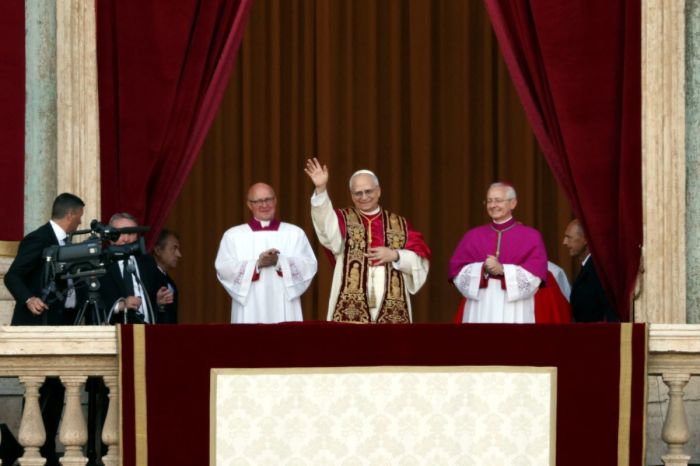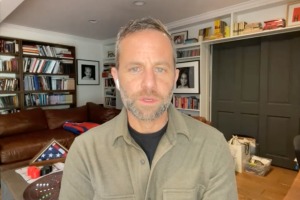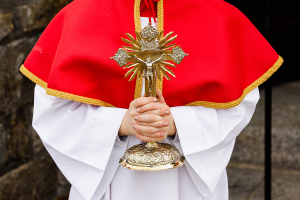Evangelical, Protestant leaders from Latin America react to Pope Leo XIV
His election seeks to 'halt the advance of Evangelical churches ... reiterates the alliance with the globalist agenda'

Peru — For Vatican experts, the election of American Robert Francis Prevost Martinez as the new pope sends clear political and symbolic signals both within and outside the Catholic world.
This was evident in his first speech, when he spoke in Italian and Spanish — instead of his native English — and for some, a clear sign of geopolitical distancing. As every time the Catholic Church renews its leadership, all eyes are focused on the new figure who emerges.
Prevost wasn't well-known outside Vatican circles and the Peruvian diocese, even though he was born in Chicago, Illinois. However, the first voices of Evangelical leadership began to emerge. Diario Cristiano (DC) sought to speak with some of these people to gather their first impressions and opinions about the new Catholic leader.
From Peru, Pastor Cristian Scheelje Cossios, president of the Union of Evangelical Christian Churches of Peru (UNICEP), acknowledged having participated formally in events with Prevost, although without maintaining a personal relationship. This was primarily related to the Interreligious Council of Peru, where different faiths converge in search of social peace.
DC also consulted with Guillermo Aguayo, pastor of the La Casa del Padre church in Lima and a defender of life and family in Peru and across the continent. Aguayo expressed that Prevost's rise to the papacy and his future leadership line "is an unknown." He explained that "the region where he served, although there is a lot of poverty, is also the region where Opus Dei has its university. However, it seems that he has leaned more toward Bergoglio's [Pope Francis'] line. That is, more toward the Left, globalism, and illegal immigrants," glimpsing a possible path the pontiff could take.
Aguayo felt that, as an American, coming from a working-class background in Chicago and “at the same time connected to the Hispanic world of Latin America through his work in Peru, the situation could become very political.”
"Either the entire American continent unites in a single political and religious direction, or we will continue to be the United States' backyard. What is healthier? We will see that in the coming years," he said.
In this regard, his compatriot, Pastor Julio Rosas — a former congressman and leader linked to the "Don't Mess With My Children" movement, currently led by his son, Cristian — said that, due to his nationality and his "20 years of work in Peru in various regions," he hopes to learn about his "firm and clear convictions in favor of life and the defense of the family as the basis and foundation of society." Rosas wished that "God bless his life and ministry."
He added, "Beyond following the lead of Pope Francis and other previous popes, let him follow the lead of Jesus Christ. Above all, let his convictions be based on the Holy Bible, the Word of God."
For her part, Peruvian engineer Pilar Vicentelo, a member of the Faith Network for Climate Justice, maintained that Prevost, as a leader in Peru, "did great work in Chiclayo (northern Peru) against sexual abuse committed by a sector of the Catholic Church." However, accusations are also mentioned about his alleged involvement in covering up cases of sexual corruption involving two priests.
From Argentina, Pastor Gerardo Oberman, president of the Reformed Churches in that country since 2009, noted: “I don't know him very well. I understand that he was trusted by Francis because of the responsibility he gave him during his pontificate. The fact that he lived in Peru, even though the church there is conservative, gives him an advantage.”
He also highlighted that Prevost, by choosing his name as Leo XIV, "shows that he somehow feels identified with Leo XIII, whose pontificate promoted the encyclical Rerum Novarum, which encouraged workers' rights and the formation of unions."
In this regard, theologian Ruth Padilla DeBorst from Costa Rica indicated that “his appointment is a ray of light in the midst of much current darkness. The choice of the name Leo evokes Leo XIII, who generated or facilitated much of the rich social doctrine of the [Catholic] Church and the encyclical Rerum Novarum.”
Oberman, for his part, observed that “being an Augustinian is another factor to keep in mind. Saint Augustine is not Thomas Aquinas. That is to say, he is not going to be a dogmatist, and I think the first words he spoke from the balcony confirm that: openness to all people, a missionary church.”
For Spanish-American communicator and author César Vidal, Prevost's election as pope "shouldn't be a surprise to anyone." Vidal, a keen analyst of global events, emphasized that "it repeats the Francis model — Hispanic, but white, not black, mestizo, or indigenous — it repeats the attempt to halt the advance of Evangelical churches, not only in Latin America but also among Hispanics in the United States. And it reiterates the alliance with the globalist agenda, which he has shown himself to be more than supportive of on issues such as mass immigration and global warming."
Padilla DeBorst praised the fact that he became a naturalized Peruvian, "a model of incarnation of the ministry." He had previously noted that "the fact that Pope Francis placed great trust in Prevost also encourages me." He added that "he seems to be concerned about the state of the planet," which makes him see "a hopeful picture" in a moderate leadership.
Vidal was more skeptical. “There may be many, many Evangelicals who ignore this and even harbor illusions about the future evolution of the Catholic Church. It would be important for them to wake up, because this time the offensive will be stronger, and this pope could easily live more than 20 years. More than ever, it is necessary to remember that the children of darkness are more cunning than the children of light, and to act and pray accordingly,” the Spaniard told DC.
The president of the Latin Evangelical Alliance (AEL), Juan Cruz Cellammare, was one of the most moderate. Like others, he said he "did not personally know" the man who, as of yesterday, embodies Leo XIV. However, he emphasized that belonging to the Order of Saint Augustine "is encouraging, considering that Augustine of Hippo was a key figure in the history of the Christian faith. He was a man deeply dedicated to his relationship with God and left an invaluable theological legacy, especially in his understanding of divine grace, which centuries later would inspire reformers like Martin Luther in their quest to rediscover the truths of the Gospel."
He added that "if the new pope — whom some already associate with the tradition of popes called Leo, known for their defense of the underdog and their pursuit of social justice — maintains a vision that honors the centrality of grace, perhaps we can discuss these essential points more clearly."
Cellammare, who lives in Paraguay, “respectfully congratulated the Catholic Church on its new leader. As president of the Latin Evangelical Alliance, I closely observe the unfolding events, reaffirming my call from God to work for the unity of the Body of Christ among my Evangelical and Protestant brothers and sisters.”
He clarified that he and the organization he represents do not participate in "institutional ecumenism," but rather "advocate for cordial and peaceful relations with those who do not share our faith, in the hope of being able to proclaim to them the message of the risen Christ."
Likewise, the Latin Evangelical Alliance maintains "spaces for dialogue and collaboration with representatives of other faiths" on issues that "compromise human dignity and the common good, such as migration, the climate crisis, the defense of life at all stages, and the pursuit of peace among peoples and nations."
"In these causes, without renouncing our identity or our testimony, we believe we can work together for the good of society. I embrace the words of Augustine of Hippo: 'In essentials, unity; in doubtful matters, liberty; in all things, charity,'" he emphasized.
The Lutheran World Federation released a congratulatory statement on the pontiff's appointment, which can be read here. In the words of its general secretary, Anne Burghardt, they stated that "together, the Roman Catholic Church and the Lutheran churches can continue to grow toward unity through shared service to people in need and through shared witness to Christ, so that the world may believe."
The World Council of Churches (WCC) also extended ecumenical greetings to Leo and expressed its “continued commitment to the Roman Catholic Church in the era of its new pontiff.”
The moderator of the WCC Central Committee, Bishop Heinrich Bedford-Strohm, expressed his joy and hope: “As Pope Francis’s successor, you will align yourself with a strong tradition. I hope you will continue Francis’ witness of love toward all people, especially the most vulnerable, and toward non-human creation.”
The Latin American Evangelical-Protestant community holds diverse views on Leo XIV, as do the institutions that represent the different voices of the Evangelical Church around the world.
Expectations surrounding Prevost's leadership are high. His choice by Bergoglio and his closeness to Francis' papacy make him a guarantor of continuity and a moderator of the disagreements his predecessor generated within and outside the institution. The new pontiff's youth suggests his leadership could extend for many years. All that remains is to wait for him to begin his journey as leader of the Roman Catholic Church.
This article was originally published at Diario Christiano International





























